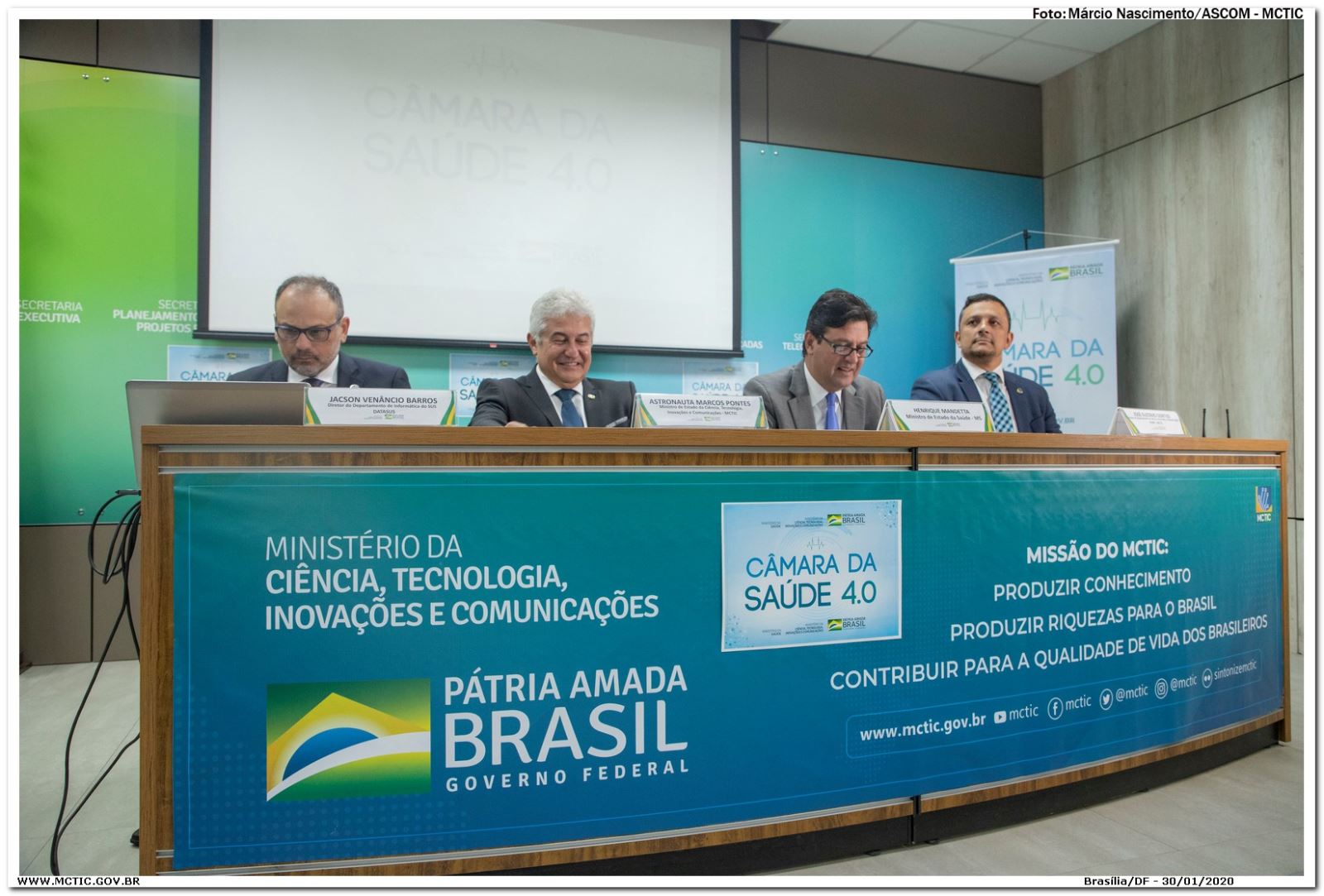
Health is one of the four priority areas in the National Plan for the Internet of Things and the objective is to use technologies in the search for solutions and improvements for the area.
The technology will allow a revolution in the health area in Brazil, said the Minister of Science, Technology, Innovations and Communications, Marcos Pontes, during the launch of the Chamber of Health 4.0, this Thursday (30), together with the Ministry of Health. of health. The health area is one of the four priority themes identified in the MCTIC's National Plan for the Internet of Things (IoT), which has already created the Chambers of Industry 4.0, Agro 4.0 and Smart Cities 4.0.
“Technology has to be used to improve people's lives. Internet of Things, artificial intelligence and connectivity, all this together will allow us to revolutionize the technology applied in the health area, both in large cities and in more distant locations”, highlighted Marcos Pontes. The minister stressed that the MCTIC's mission is to improve people's quality of life and, according to him, the collaboration with the Ministry of Health will allow the execution of this mission in an intense and extensive way.
The Chamber of Health 4.0 will be coordinated by the Ministry of Health, in agreement with the MCTIC, encouraging the participation of members from universities, science and technology institutes, the private sector and other relevant actors in the innovation and health scenario, with the participation of states and municipalities. The objective is to bring members together, identify and discuss relevant issues, seek synergies, align actions, articulate and propose initiatives for the implementation of IoT.
At the ceremony, a technical cooperation agreement was signed between the two ministries with the aim of improving the implementation of Internet of Things applications in the health area. The use of these devices could improve the effectiveness of health care through continuous monitoring of patients and the adoption of IoT solutions; increase speed and effectiveness in epidemiological surveillance and possible health risks; promote connectivity with a view to integrating the Unified Health System (SUS).
Integrated health units
During the ceremony, the Minister of Health, Luiz Henrique Mandetta, announced that a pilot project for the integration of all health units in the country is already underway in the state of Alagoas. Once completed, this project must be presented and validated by the Chamber of Health, which will extend it to the entire country. “Brazil could be the first continental country to have all health data integrated.” The information will be shared by the health units of all states and municipalities.
In this integrated system of health units, the minister explained, the technology will also be used to form a health database for all Brazilians. Initially, the system should record five basic information for each patient: consultations performed; hospitalization; medications received; tests performed and vaccinations taken.
This database should be completed within the next five years and will have around R$ 4 billion to R$ 6 billion in investments, Mandetta revealed. “These data can be used for research, solution building, vaccine coverage and disease management.” The Minister of Health reinforced that the use of this patient data by professionals and health units will be regulated by the General Data Protection Law.
The Health Chamber 4.0 is part of the actions provided for in the National Plan for the Internet of Things (IoT), launched by MCTIC in 2019. The plan is a technological revolution aimed at connecting devices used in everyday life to the internet. The idea is to implement and develop the Internet of Things in Brazil, based on free competition and data circulation, in compliance with information security, privacy and personal data protection guidelines.
Watch the event in full on our YouTube channel ( www.youtube.com/mctic )












